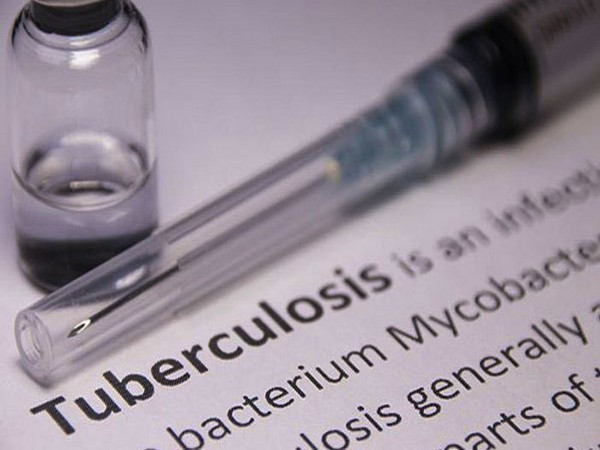WHO calls for intensified whole-of-government approach to end tuberculosis
On World TB Day, WHO Friday called for an intensified whole-of-government and whole-of-society approach to end the disease globally.It also highlighted the urgent need for strengthening high-level leadership and investments and accelerating the uptake of innovations and new recommendations of the world health body.Globally, the COVID-19 pandemic has not just stalled but reversed years of progress towards ending tuberculosis, said WHO Regional Director for South-East Asia Dr Poonam Khetrapal Singh.In 2021, the estimated burden of new and relapse tuberculosis cases globally was 10.6 million, a half-a-million increase from 2020.

- Country:
- India
On World TB Day, WHO Friday called for an intensified whole-of-government and whole-of-society approach to end the disease globally.
It also highlighted the urgent need for strengthening high-level leadership and investments and accelerating the uptake of innovations and new recommendations of the world health body.
Globally, the COVID-19 pandemic has not just stalled but reversed years of progress towards ending tuberculosis, said WHO Regional Director for South-East Asia Dr Poonam Khetrapal Singh.
In 2021, the estimated burden of new and relapse tuberculosis cases globally was 10.6 million, a half-a-million increase from 2020. Mortality from TB and TB-HIV infection stood at 1.6 million, an increase of around 200,000 from pre-COVID-19 levels, she said.
The WHO South-East Asia Region bears the world's highest tuberculosis burden.
In 2021, the region accounted for more than 45 per cent of global tuberculosis incidence and more than half of global TB deaths.
Throughout the COVID-19 pandemic, the region prioritised maintaining essential health services, including for TB. In 2020, it notified 2.6 million new and relapse TB cases, a 24 per cent reduction from 2019.
In 2021, the WHO South-East Asia region achieved a partial recovery, reporting 3 million new and relapsed cases, still 12 per cent fewer than in 2019, she said.
''The COVID-19 crisis has exacerbated key social and economic determinants of TB such as poverty and undernutrition, pushing tens of millions more people in the region into extreme poverty,'' Khetrapal Singh said.
''Even before the pandemic, an estimated 30–80 per cent of tuberculosis patients in the (WHO's south-east Asia) region faced catastrophic costs due to the disease and around 1 million new TB cases annually, more than one in five attributable to undernutrition,'' she said.
It is estimated that across the region, the overall impact of the crisis could lead to over 7 million additional tuberculosis cases and 1.5 million additional deaths between 2022 and 2026, Khetrapal Singh said.
''Despite the ongoing challenges, the region continues to intensify action to achieve the end-TB milestones in line with its flagship priority and Regional Strategic Plan towards ending TB 2021–25, as well as the global End TB Strategy, the UN Political Declaration on the Fight Against TB, and Sustainable Development Goal 3.3.'' The momentum must continue to build ahead of the second UN High Level Meeting on TB, scheduled for September 2023, she said.
For that, the Region has several priorities and the first among them is strengthening high-level leadership, engagement and advocacy to increase investments to end tuberculosis, Khetrapal Singh said. The second is accelerating the uptake of new WHO recommendations and innovations. To date, more than 5,000 molecular test platforms have been deployed across the region to rapidly detect TB and drug resistance. Such platforms must continue to be scaled to ensure prompt diagnosis and treatment and to reduce spread. In all countries, a new WHO-approved treatment regimen that has shown better cure rates in just six to nine months should be rapidly adopted and rolled out, Khetrapal Singh said.
The third is to aggressively address the social and economic determinants of TB, which are a major ongoing challenge. For this, mechanisms should be established and strengthened to support TB patients and their families to avoid catastrophic costs, supplement nutrition and promote treatment adherence. Stigma and discrimination must continue to be tackled, including through community engagement and empowerment initiatives that promote high-quality information and include affected communities in all aspects of policy and programme design, planning and monitoring.
''The health sector alone cannot end tuberculosis. Rather, ending TB requires dedicated action from multiple sectors, which as highlighted at the 2021 Regional High-level Meeting to End TB, should be coordinated by national high-level mechanisms,'' Khetrapal Singh added.
(This story has not been edited by Devdiscourse staff and is auto-generated from a syndicated feed.)
- READ MORE ON:
- Region
- The WHO South-East Asia Region
- World TB Day
- COVID-19
- East Asia Dr
- Singh
- Asia
- Poonam










